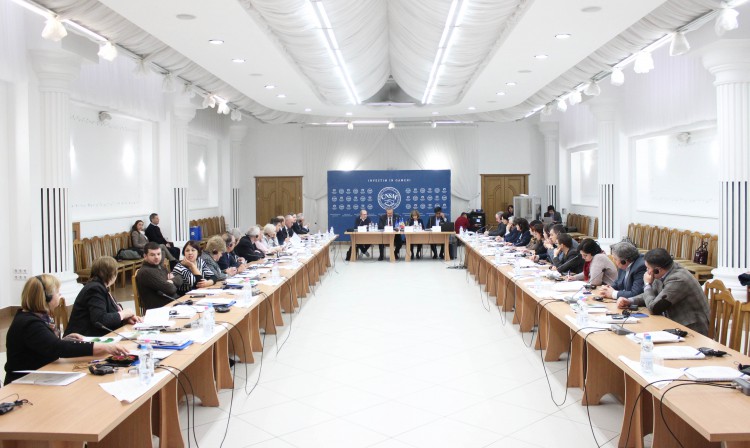The implementation of the SDGs, a unique opportunity for trade unions to promote, respect and guarantee workers’ rights
Strengthening the workers organizations’ efforts in the Implementation of the Sustainable Development Objectives Policies of the 2030 Agenda in the Republic of Moldova is the theme of the seminar organized for the members of the Confederal Committee of the CNSM, which is held for 2 days, 13-14 December, within the CNSM Labour Institute.
Oleg Budza, president of CNSM, praised this event as a platform for discussions on the involvement of trade unions in the measures for the implementation of the Sustainable Development Objectives in our country that are relevant to the Republic of Moldova. He stressed that for Moldovan trade unions it is basically important that the objectives regarding the level of living and working of the employees to be achieved with great success.
CNSM president pointed out that the decent work and economic growth objective of the 2030 Agenda is of great interest to trade unions because it is linked to the Country Program for Decent Work for 2016-2020, which focuses on 4 pillars: promoting jobs and businesses, guaranteeing employment rights, expanding social protection and promoting social dialogue.
At the same time, Oleg Budza pointed out that promoting economic growth, developing and supporting small and medium-sized enterprises, which will lead to job creation, interconnected with promotional activities and capacity building of social partners, could increase the efficiency of 2030 Agenda activities. “Trade unions need to increase their capacity to contribute to the planning and implementation of 2030 Agenda. The implementation mechanism is one: effective social dialogue,” concluded the president of the CNSM.
Dafina Gercheva, UN Resident Coordinator, UNDP Permanent Representative to the Republic of Moldova, noted that the seminar was organized on time and aims at the role of trade unions in the implementation of SDGs and the achievement of the 17 objectives of 2030 Agenda. “The role of trade unions regarding the implementation of the Sustainable Development Objectives is a real one from the point of view of their correct application,” said Dafina Gercheva.
Ariel Castro, Specialist in Workers’ Activities ILO-ACTRAV, talked about the relevance of SDGs to the trade union agenda and how they can work with the International Labour Organization to promote and implement 2030 Agenda. In his view, the participation of the trade unions in the SDGs implementation processes offers a unique opportunity to influence the social, economic policies promoted by the government, ensuring social protection through decent wages, good working conditions.
2030 Agenda for Sustainable Development was adopted on 25 September 2015 by the Heads of State and Government of the 193 UN General Assembly countries. This global document includes 17 Sustainable Development Objectives, which provide for the eradication of poverty and hunger, set a wide range of economic, social and environmental objectives in an integrated approach based on respect for human rights.
Department of mass-media and international relations of CNSM



